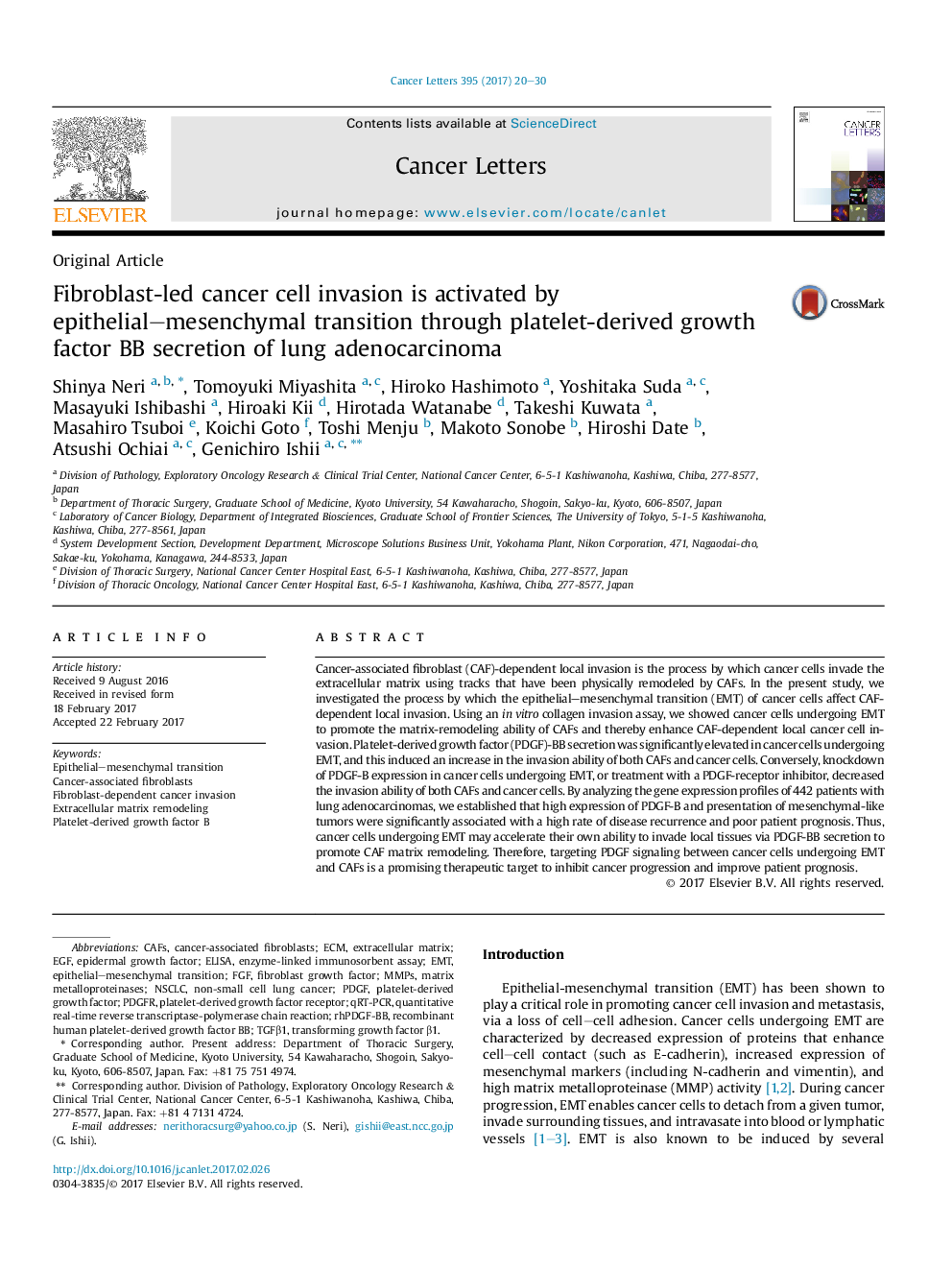| Article ID | Journal | Published Year | Pages | File Type |
|---|---|---|---|---|
| 5525625 | Cancer Letters | 2017 | 11 Pages |
â¢Cancer-cell EMT promotes the extracellular matrix remodeling by CAFs.â¢PDGF-BB secretion from cancer cells undergoing EMT is higher than non-EMT cancer cells.â¢Cancer-cell EMT activates invasion ability of CAFs and cancer cells via PDGF-BB.â¢PDGF-B levels are significantly higher in lung cancer patients with EMT signature.â¢The patients with high PDGF-B expression have a significantly worse prognosis.
Cancer-associated fibroblast (CAF)-dependent local invasion is the process by which cancer cells invade the extracellular matrix using tracks that have been physically remodeled by CAFs. In the present study, we investigated the process by which the epithelial-mesenchymal transition (EMT) of cancer cells affect CAF-dependent local invasion. Using an in vitro collagen invasion assay, we showed cancer cells undergoing EMT to promote the matrix-remodeling ability of CAFs and thereby enhance CAF-dependent local cancer cell invasion. Platelet-derived growth factor (PDGF)-BB secretion was significantly elevated in cancer cells undergoing EMT, and this induced an increase in the invasion ability of both CAFs and cancer cells. Conversely, knockdown of PDGF-B expression in cancer cells undergoing EMT, or treatment with a PDGF-receptor inhibitor, decreased the invasion ability of both CAFs and cancer cells. By analyzing the gene expression profiles of 442 patients with lung adenocarcinomas, we established that high expression of PDGF-B and presentation of mesenchymal-like tumors were significantly associated with a high rate of disease recurrence and poor patient prognosis. Thus, cancer cells undergoing EMT may accelerate their own ability to invade local tissues via PDGF-BB secretion to promote CAF matrix remodeling. Therefore, targeting PDGF signaling between cancer cells undergoing EMT and CAFs is a promising therapeutic target to inhibit cancer progression and improve patient prognosis.
